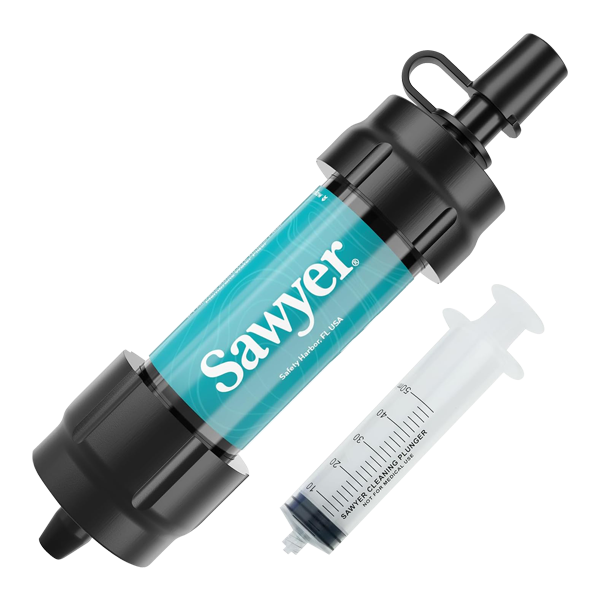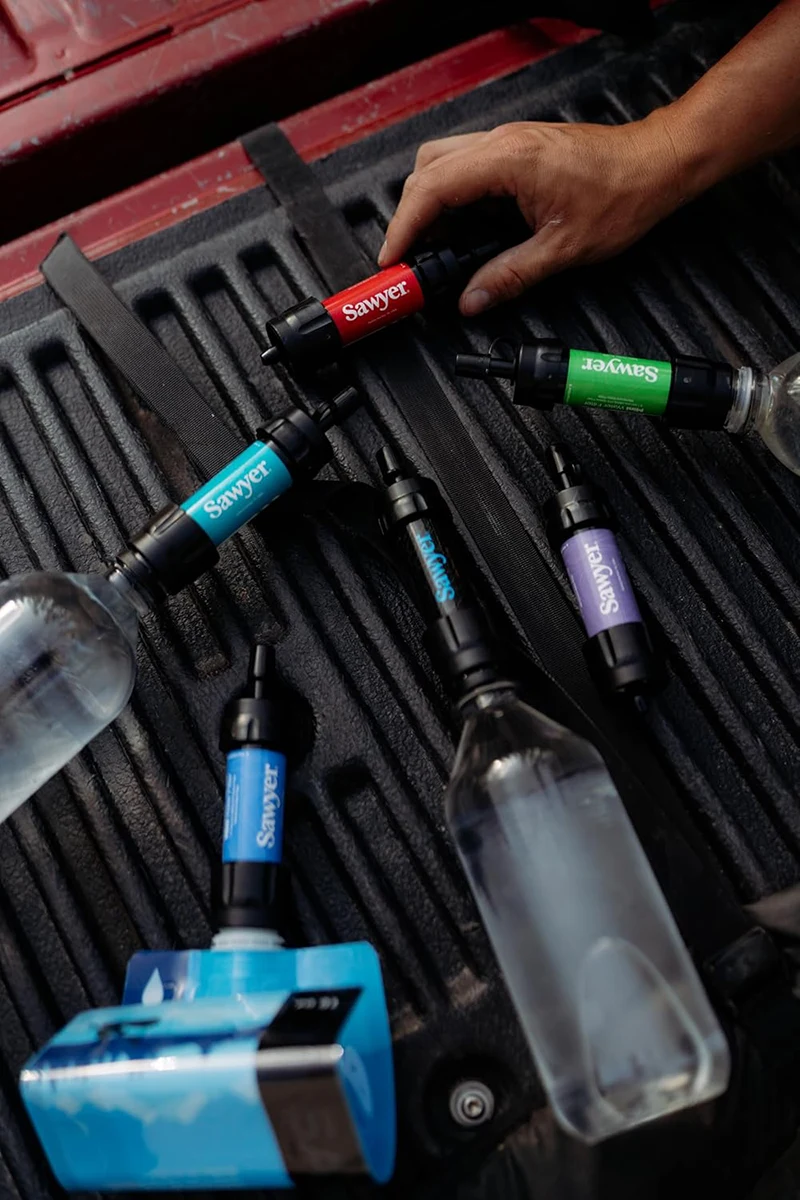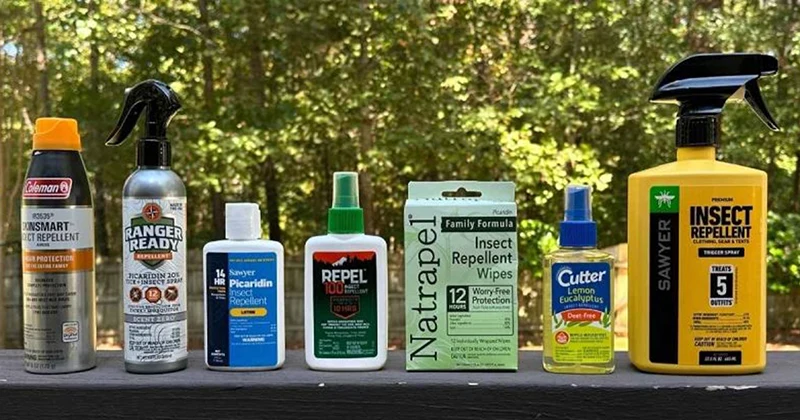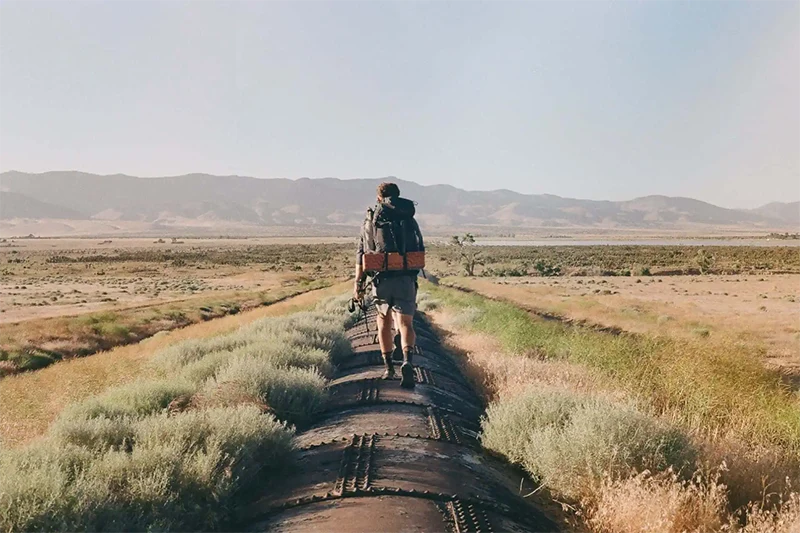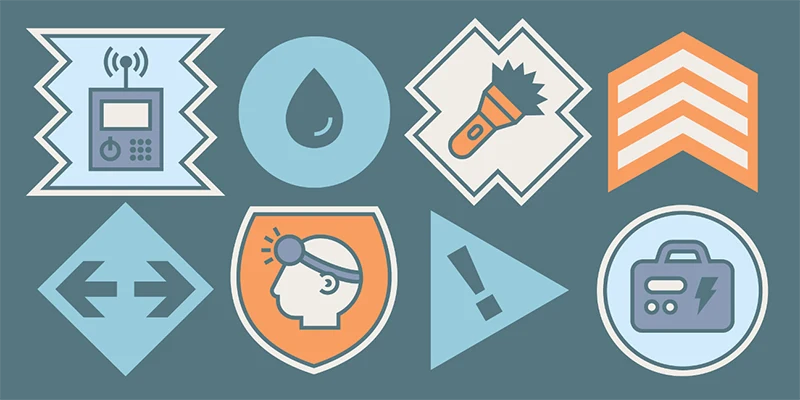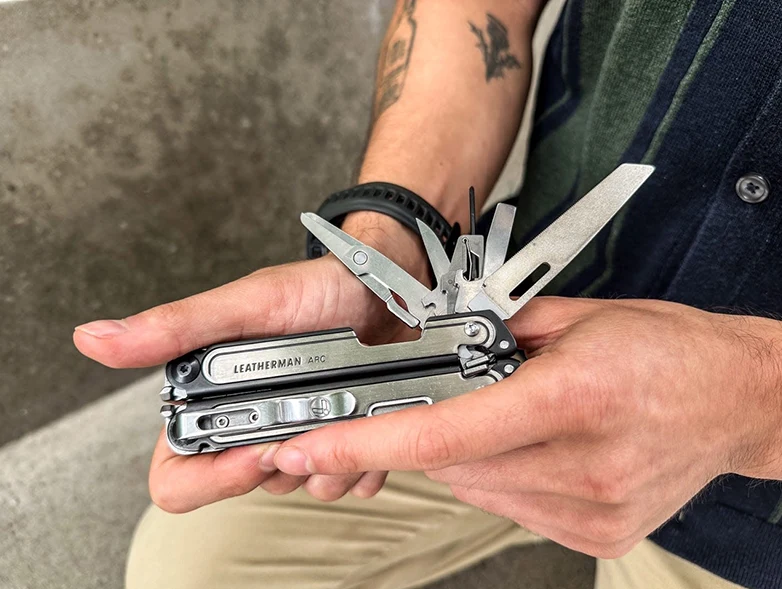The Power of Vulnerability: An Interview with Chad Brown
The Power of Vulnerability: An Interview with Chad Brown

The Power of Vulnerability: An Interview with Chad Brown
YouTube video highlight
Blackwater encompasses the power of five Black men whose paths have been challenged with loss, defeat, fear, and pain by life’s ups ...
Read more about the projectInterview edited for length and clarity.
Where are you from?
I am a born and raised Texan! I was born in Cureo and grew up in Austin.

How did you first get into fishing?
I got into fishing after serving time in the military made for some really bad circumstances. It felt like life collided into me. PTSD was my dragon to tame and before I was able to attempt to tame this dragon, I had to fight a 6-year battle of life and death. PTSD robbed these years of my life and sent me down a dark path of attempted suicide, homelessness, and finding myself alone, wandering, and fighting hard to survive.
One day a friend took me somewhere that had helped her through her divorce: a local river to fish. She shared fly fishing with me and I decided to take it on as a passion.
It became not just a sport but medicine to help heal my soul and find my path to the light.
The Veteran Administration hospital supported me with this opportunity and over time weaned me off the medications with an agreement to continue in group therapy and fly fish.
What do you love most about the outdoors?
What I love most about the outdoors is the opportunity to help others connect to the amazing awe power of nature. When someone experiences the awe power, they experience the why of nature. There’s medicinal properties in the awe power that help us connect to our human souls and minds for healing and spiritual growth.

What inspired you to gravitate towards storytelling through creative projects?
I’ve been a photographer for over 30 years. I’ve held positions as Creative Director and art director for ad agencies, design firms, worked on brand-building everywhere from New York, LA to Hong Kong, and found myself working in the fashion and hip-hop world. It's God’s gift to tell stories through film and photography.
Nature was able to heal me so I could return to society and give back. I put my talent towards not just brands and products but to the stories of the BIPOC voices in our communities and their connection to nature. I started telling stories of fishing, environmental, and social justice and prioritized finding and creating safe spaces that bring people together.

What is the most important thing you want people to take away from the Blackwaters film?
We as leaders, decision-makers, and influencers have the power to do something amazing with our platforms and give opportunities to many deserving people in communities that are important to us. We work to create initiatives, campaigns, and programs for communities that resonate with our experiences and are a comfort to be a part of.
With Blackwaters, I wanted an initiative that focused on Black men. We suffer from many challenges of psychological disparities and emotions from historical racism and the plague of stereotypes in our society from various media channels. Young black boys are facing the same disconnect from nature.

For the audience to see thriving Black men represented in nature is very important and powerful. The connection young black boys may have to seeing someone that looks like them experiencing nature and finding healing in the outdoors is paramount to influence and growth.
The feedback I’ve received on the film so far has been a deep appreciation for the vulnerability Team Blackwaters shows throughout the project.
There may be alpha males in the audience who experience discomfort at this film because they don’t understand the amount of vulnerability the Blackwater team shows - that is a whole other level of masculinity and toxicity. This character comes with the success. I welcome this; it tells me I’m doing my job as a storyteller and film director.
Ultimately all of us deserve to be acknowledged as a part of the community and as a part of humanity as a whole. If we focus on the loving side of humans and prioritize nature as a necessity in our lives, that’s a step closer to everyone feeling included.

How did you decide on Gates of the Arctic Circle NP as the backdrop for your project?
I’ve done over 30 expeditions into the Arctic Circle over 8 years on creative and environmental projects. I’ve covered issues including the protection of the Arctic Refuge and indigenous land rights and cultural preservation for the Gwich'in Nation. There’s not enough attention given to this part of the world in the lower 48 to understand how critical these issues are to our environment and as to the human race as a whole.
Being in this space allows me to leverage new opportunities to create educational expeditions that focus on advocacy for the Arctic and connecting BIPOC leaders to nature so they can learn and build on their skill sets.
I saw Gates of the Arctic Circle NP as an opportunity for diverse voices to tell the story of the sensitive issues this part of the world is facing. It was also a goal to connect with the original people of the land, the Gwich'in Nation, to advocate for them and work alongside them to preserve the land, water, and wildlife they call home. This destination was a solid backdrop for me to tell a story around social justice issues, the impact of climate change on land and indigenous communities, and fight against the stigmas Black men face in our society.

What was the most impactful part of your interactions with the Gwich'in community?
My interactions with the Gwich'in Nation are always impactful. I find myself deep in thought especially when I am connecting with the elders of the community. They hold the magic of knowledge, and where much is unwritten, when the elders speak it is full of wisdom. Their connection to the land is phenomenal and beautiful, but filled with so much mystery. They are wonderful people.

Tell me more about the Arctic Refuge Protection Act.
The focus of the Arctic Refuge Protection Act is on restoring critical protections to the Arctic National Wildlife Refuge and protecting the Gwich’in people. It would designate the Coastal Plain ecosystem as wilderness.
A few years ago I had the opportunity to speak and testify on Capitol Hill alongside the Chiefs of the Gwich’in Nation and other community leaders in an attempt to keep the act in motion. The battle is ongoing and the fight is a marathon.
The Arctic is one of the last great frontiers of pristine land that needs to be protected for the Gwich'in Nations.
The Arctic National Wildlife Refuge covers 19.6 million acres and is the largest unit in the National Wildlife Refuge System. The 1.56 million-acre Coastal Plain, the biological heart of the Refuge, contains the calving grounds for the Porcupine caribou herd and is home to denning polar bears, musk oxen, wolves, and more than 150 species of migratory birds. The 9,000-strong Gwich’in Nation, living in Alaska and Canada, make their home on or near the migratory route of the Porcupine caribou herd, and have depended on this herd for their subsistence and culture for thousands of years.

What were the biggest takeaways you have from the project?
There is so much deep work to do to raise more voices and tell more BIPOC stories in environmental space. Since filming Blackwaters, I’ve been inspired to jump into telling a new story and show the perspective of women of color connecting to nature, conservation, political issues, and indigenous communities in their own way. I want to lift their voices and give them the opportunity to share their personal stories.
Women have been systemically left out, overlooked, and undervalued in a male-dominated world and I’m excited to give them a platform to speak and show us who they are in this world. This film will be emotionally challenging and will land differently with different folks, especially men.
The name of the film is “Mother” and I can’t wait for the release in 2024!
Visit the links below to learn more and support Blackwater, Love Is King, and Operation ROAM.
Blackwater Swag
Love Is King
Operation ROAM
CLICK HERE TO DONATE
The Power of Vulnerability: An Interview with Chad Brown


Interview edited for length and clarity.
Where are you from?
I am a born and raised Texan! I was born in Cureo and grew up in Austin.

How did you first get into fishing?
I got into fishing after serving time in the military made for some really bad circumstances. It felt like life collided into me. PTSD was my dragon to tame and before I was able to attempt to tame this dragon, I had to fight a 6-year battle of life and death. PTSD robbed these years of my life and sent me down a dark path of attempted suicide, homelessness, and finding myself alone, wandering, and fighting hard to survive.
One day a friend took me somewhere that had helped her through her divorce: a local river to fish. She shared fly fishing with me and I decided to take it on as a passion.
It became not just a sport but medicine to help heal my soul and find my path to the light.
The Veteran Administration hospital supported me with this opportunity and over time weaned me off the medications with an agreement to continue in group therapy and fly fish.
What do you love most about the outdoors?
What I love most about the outdoors is the opportunity to help others connect to the amazing awe power of nature. When someone experiences the awe power, they experience the why of nature. There’s medicinal properties in the awe power that help us connect to our human souls and minds for healing and spiritual growth.

What inspired you to gravitate towards storytelling through creative projects?
I’ve been a photographer for over 30 years. I’ve held positions as Creative Director and art director for ad agencies, design firms, worked on brand-building everywhere from New York, LA to Hong Kong, and found myself working in the fashion and hip-hop world. It's God’s gift to tell stories through film and photography.
Nature was able to heal me so I could return to society and give back. I put my talent towards not just brands and products but to the stories of the BIPOC voices in our communities and their connection to nature. I started telling stories of fishing, environmental, and social justice and prioritized finding and creating safe spaces that bring people together.

What is the most important thing you want people to take away from the Blackwaters film?
We as leaders, decision-makers, and influencers have the power to do something amazing with our platforms and give opportunities to many deserving people in communities that are important to us. We work to create initiatives, campaigns, and programs for communities that resonate with our experiences and are a comfort to be a part of.
With Blackwaters, I wanted an initiative that focused on Black men. We suffer from many challenges of psychological disparities and emotions from historical racism and the plague of stereotypes in our society from various media channels. Young black boys are facing the same disconnect from nature.

For the audience to see thriving Black men represented in nature is very important and powerful. The connection young black boys may have to seeing someone that looks like them experiencing nature and finding healing in the outdoors is paramount to influence and growth.
The feedback I’ve received on the film so far has been a deep appreciation for the vulnerability Team Blackwaters shows throughout the project.
There may be alpha males in the audience who experience discomfort at this film because they don’t understand the amount of vulnerability the Blackwater team shows - that is a whole other level of masculinity and toxicity. This character comes with the success. I welcome this; it tells me I’m doing my job as a storyteller and film director.
Ultimately all of us deserve to be acknowledged as a part of the community and as a part of humanity as a whole. If we focus on the loving side of humans and prioritize nature as a necessity in our lives, that’s a step closer to everyone feeling included.

How did you decide on Gates of the Arctic Circle NP as the backdrop for your project?
I’ve done over 30 expeditions into the Arctic Circle over 8 years on creative and environmental projects. I’ve covered issues including the protection of the Arctic Refuge and indigenous land rights and cultural preservation for the Gwich'in Nation. There’s not enough attention given to this part of the world in the lower 48 to understand how critical these issues are to our environment and as to the human race as a whole.
Being in this space allows me to leverage new opportunities to create educational expeditions that focus on advocacy for the Arctic and connecting BIPOC leaders to nature so they can learn and build on their skill sets.
I saw Gates of the Arctic Circle NP as an opportunity for diverse voices to tell the story of the sensitive issues this part of the world is facing. It was also a goal to connect with the original people of the land, the Gwich'in Nation, to advocate for them and work alongside them to preserve the land, water, and wildlife they call home. This destination was a solid backdrop for me to tell a story around social justice issues, the impact of climate change on land and indigenous communities, and fight against the stigmas Black men face in our society.

What was the most impactful part of your interactions with the Gwich'in community?
My interactions with the Gwich'in Nation are always impactful. I find myself deep in thought especially when I am connecting with the elders of the community. They hold the magic of knowledge, and where much is unwritten, when the elders speak it is full of wisdom. Their connection to the land is phenomenal and beautiful, but filled with so much mystery. They are wonderful people.

Tell me more about the Arctic Refuge Protection Act.
The focus of the Arctic Refuge Protection Act is on restoring critical protections to the Arctic National Wildlife Refuge and protecting the Gwich’in people. It would designate the Coastal Plain ecosystem as wilderness.
A few years ago I had the opportunity to speak and testify on Capitol Hill alongside the Chiefs of the Gwich’in Nation and other community leaders in an attempt to keep the act in motion. The battle is ongoing and the fight is a marathon.
The Arctic is one of the last great frontiers of pristine land that needs to be protected for the Gwich'in Nations.
The Arctic National Wildlife Refuge covers 19.6 million acres and is the largest unit in the National Wildlife Refuge System. The 1.56 million-acre Coastal Plain, the biological heart of the Refuge, contains the calving grounds for the Porcupine caribou herd and is home to denning polar bears, musk oxen, wolves, and more than 150 species of migratory birds. The 9,000-strong Gwich’in Nation, living in Alaska and Canada, make their home on or near the migratory route of the Porcupine caribou herd, and have depended on this herd for their subsistence and culture for thousands of years.

What were the biggest takeaways you have from the project?
There is so much deep work to do to raise more voices and tell more BIPOC stories in environmental space. Since filming Blackwaters, I’ve been inspired to jump into telling a new story and show the perspective of women of color connecting to nature, conservation, political issues, and indigenous communities in their own way. I want to lift their voices and give them the opportunity to share their personal stories.
Women have been systemically left out, overlooked, and undervalued in a male-dominated world and I’m excited to give them a platform to speak and show us who they are in this world. This film will be emotionally challenging and will land differently with different folks, especially men.
The name of the film is “Mother” and I can’t wait for the release in 2024!
Visit the links below to learn more and support Blackwater, Love Is King, and Operation ROAM.
Blackwater Swag
Love Is King
Operation ROAM
CLICK HERE TO DONATE
The Power of Vulnerability: An Interview with Chad Brown


Interview edited for length and clarity.
Where are you from?
I am a born and raised Texan! I was born in Cureo and grew up in Austin.

How did you first get into fishing?
I got into fishing after serving time in the military made for some really bad circumstances. It felt like life collided into me. PTSD was my dragon to tame and before I was able to attempt to tame this dragon, I had to fight a 6-year battle of life and death. PTSD robbed these years of my life and sent me down a dark path of attempted suicide, homelessness, and finding myself alone, wandering, and fighting hard to survive.
One day a friend took me somewhere that had helped her through her divorce: a local river to fish. She shared fly fishing with me and I decided to take it on as a passion.
It became not just a sport but medicine to help heal my soul and find my path to the light.
The Veteran Administration hospital supported me with this opportunity and over time weaned me off the medications with an agreement to continue in group therapy and fly fish.
What do you love most about the outdoors?
What I love most about the outdoors is the opportunity to help others connect to the amazing awe power of nature. When someone experiences the awe power, they experience the why of nature. There’s medicinal properties in the awe power that help us connect to our human souls and minds for healing and spiritual growth.

What inspired you to gravitate towards storytelling through creative projects?
I’ve been a photographer for over 30 years. I’ve held positions as Creative Director and art director for ad agencies, design firms, worked on brand-building everywhere from New York, LA to Hong Kong, and found myself working in the fashion and hip-hop world. It's God’s gift to tell stories through film and photography.
Nature was able to heal me so I could return to society and give back. I put my talent towards not just brands and products but to the stories of the BIPOC voices in our communities and their connection to nature. I started telling stories of fishing, environmental, and social justice and prioritized finding and creating safe spaces that bring people together.

What is the most important thing you want people to take away from the Blackwaters film?
We as leaders, decision-makers, and influencers have the power to do something amazing with our platforms and give opportunities to many deserving people in communities that are important to us. We work to create initiatives, campaigns, and programs for communities that resonate with our experiences and are a comfort to be a part of.
With Blackwaters, I wanted an initiative that focused on Black men. We suffer from many challenges of psychological disparities and emotions from historical racism and the plague of stereotypes in our society from various media channels. Young black boys are facing the same disconnect from nature.

For the audience to see thriving Black men represented in nature is very important and powerful. The connection young black boys may have to seeing someone that looks like them experiencing nature and finding healing in the outdoors is paramount to influence and growth.
The feedback I’ve received on the film so far has been a deep appreciation for the vulnerability Team Blackwaters shows throughout the project.
There may be alpha males in the audience who experience discomfort at this film because they don’t understand the amount of vulnerability the Blackwater team shows - that is a whole other level of masculinity and toxicity. This character comes with the success. I welcome this; it tells me I’m doing my job as a storyteller and film director.
Ultimately all of us deserve to be acknowledged as a part of the community and as a part of humanity as a whole. If we focus on the loving side of humans and prioritize nature as a necessity in our lives, that’s a step closer to everyone feeling included.

How did you decide on Gates of the Arctic Circle NP as the backdrop for your project?
I’ve done over 30 expeditions into the Arctic Circle over 8 years on creative and environmental projects. I’ve covered issues including the protection of the Arctic Refuge and indigenous land rights and cultural preservation for the Gwich'in Nation. There’s not enough attention given to this part of the world in the lower 48 to understand how critical these issues are to our environment and as to the human race as a whole.
Being in this space allows me to leverage new opportunities to create educational expeditions that focus on advocacy for the Arctic and connecting BIPOC leaders to nature so they can learn and build on their skill sets.
I saw Gates of the Arctic Circle NP as an opportunity for diverse voices to tell the story of the sensitive issues this part of the world is facing. It was also a goal to connect with the original people of the land, the Gwich'in Nation, to advocate for them and work alongside them to preserve the land, water, and wildlife they call home. This destination was a solid backdrop for me to tell a story around social justice issues, the impact of climate change on land and indigenous communities, and fight against the stigmas Black men face in our society.

What was the most impactful part of your interactions with the Gwich'in community?
My interactions with the Gwich'in Nation are always impactful. I find myself deep in thought especially when I am connecting with the elders of the community. They hold the magic of knowledge, and where much is unwritten, when the elders speak it is full of wisdom. Their connection to the land is phenomenal and beautiful, but filled with so much mystery. They are wonderful people.

Tell me more about the Arctic Refuge Protection Act.
The focus of the Arctic Refuge Protection Act is on restoring critical protections to the Arctic National Wildlife Refuge and protecting the Gwich’in people. It would designate the Coastal Plain ecosystem as wilderness.
A few years ago I had the opportunity to speak and testify on Capitol Hill alongside the Chiefs of the Gwich’in Nation and other community leaders in an attempt to keep the act in motion. The battle is ongoing and the fight is a marathon.
The Arctic is one of the last great frontiers of pristine land that needs to be protected for the Gwich'in Nations.
The Arctic National Wildlife Refuge covers 19.6 million acres and is the largest unit in the National Wildlife Refuge System. The 1.56 million-acre Coastal Plain, the biological heart of the Refuge, contains the calving grounds for the Porcupine caribou herd and is home to denning polar bears, musk oxen, wolves, and more than 150 species of migratory birds. The 9,000-strong Gwich’in Nation, living in Alaska and Canada, make their home on or near the migratory route of the Porcupine caribou herd, and have depended on this herd for their subsistence and culture for thousands of years.

What were the biggest takeaways you have from the project?
There is so much deep work to do to raise more voices and tell more BIPOC stories in environmental space. Since filming Blackwaters, I’ve been inspired to jump into telling a new story and show the perspective of women of color connecting to nature, conservation, political issues, and indigenous communities in their own way. I want to lift their voices and give them the opportunity to share their personal stories.
Women have been systemically left out, overlooked, and undervalued in a male-dominated world and I’m excited to give them a platform to speak and show us who they are in this world. This film will be emotionally challenging and will land differently with different folks, especially men.
The name of the film is “Mother” and I can’t wait for the release in 2024!
Visit the links below to learn more and support Blackwater, Love Is King, and Operation ROAM.
Blackwater Swag
Love Is King
Operation ROAM
CLICK HERE TO DONATE






.png)











